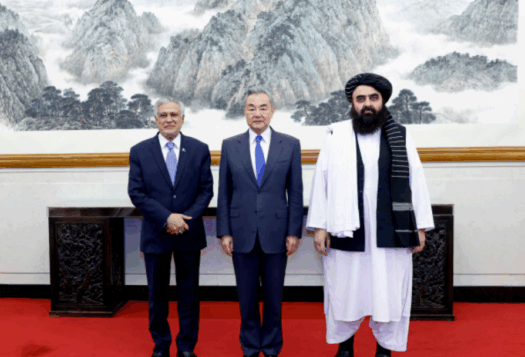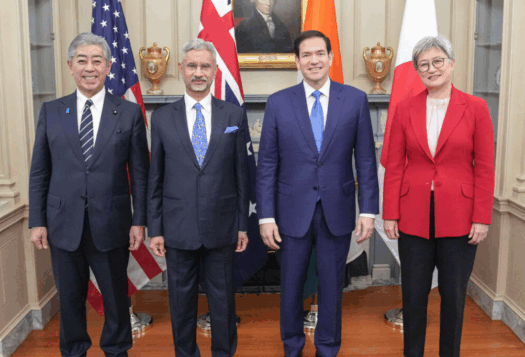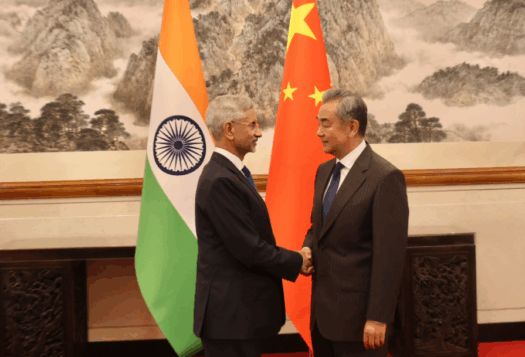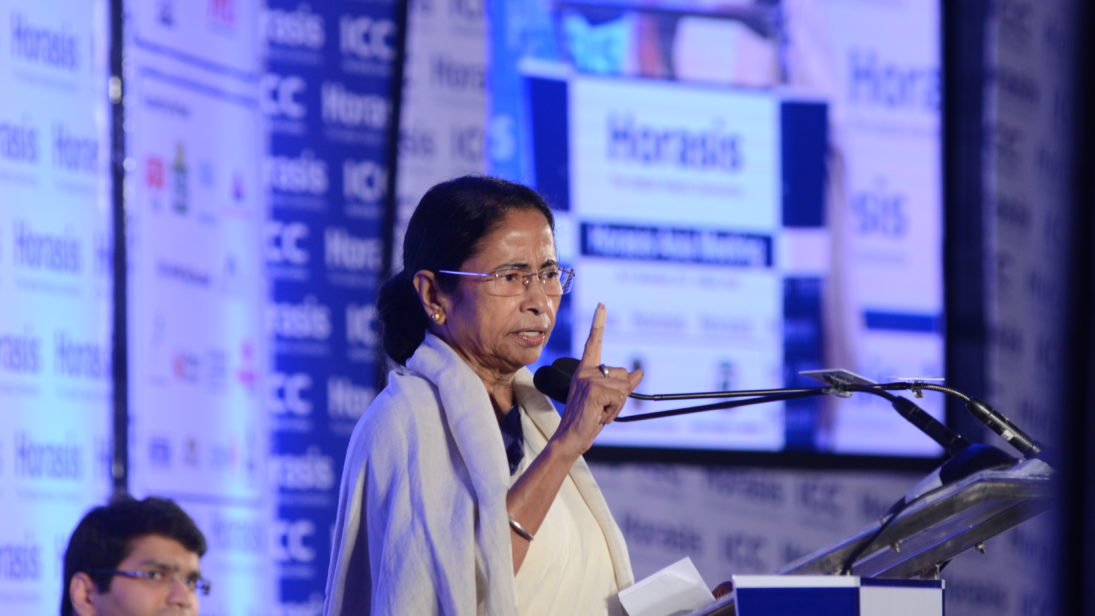
The Mamata Banerjee-led All-India Trinamool Congress (AITC) has secured a majority, winning 213 seats in the 294-member assembly in the recent West Bengal elections. The AITC’s principal opponent, the Bharatiya Janata Party (BJP) has won 77 seats while the Indian National Congress (INC) and the Communist Party of India- Marxist (CPI-M), that governed West Bengal for thirty years, drew a blank.
The media has deliberated on the factors that led AITC to victory, including Banerjee’s image of Bangla nijer meye (Bengal’s own daughter) protecting her pristine maati (motherland) from outsiders like the BJP, and the party’s welfare programs that helped win them the support of women voters. Many Bengali media outlets collectively praised Banerjee. Surprisingly, media outlets in Prime Minister Modi’s home state Gujarat conceded that Banerjee’s stature had risen after the victory and she could lead India in the 2024 General Elections. While applauding her efforts, much of the Hindi media expressed bewilderment at the results and supported the BJP’s ideological campaign whereas the Bangladeshi media instead focused on the impact of Banerjee’s victory on Indo-Bangladesh relations.
The BJP’s loss and the AITC’s victory will have far-reaching consequences for domestic and regional politics since West Bengal shares a border with Bangladesh and its internal political dynamics directly impact the Indo-Bangladesh relationship. For example, the BJP supports the Citizenship Amendment Act (CAA) and the National Register for Citizens (NRC), which in conjunction could deprive certain foreign nationals of Indian citizenship, which could lead to massive displacement of populations in West Bengal and economic decline in both countries. Banerjee, who vehemently opposes CAA and NRC, has forced BJP to reflect on the impact of its national policies on state and bilateral political dynamics. Owing to the AITC victory and Banerjee’s increasing popularity, the BJP is likely to involve West Bengal leadership when calibrating the future of India-Bangladesh ties.
Potential Changes Within the Indian Political Landscape
The AITC has emerged as the principal opposition party in India and Banerjee is expected to form a coalition to fight the National Democratic Alliance (NDA)—a social coalition comprising ideologically diverse political parties led by the right-wing BJP—in the 2024 general elections. Banerjee had expressed her desire to lead the anti-BJP front during the campaign trail for the West Bengal assembly elections, remarking that she could win the state elections with “a broken leg.”
Owing to the AITC victory and Banerjee’s increasing popularity, the BJP is likely to involve West Bengal leadership when calibrating the future of India-Bangladesh ties
For the BJP, winning West Bengal would have reinforced the belief that Hindu majoritarian politics had found acceptance among the Indian electorate since West Bengal is one of the last opposition bastions where the BJP has never won an election. Riding high on the BJP’s development agenda that focused on good governance and infrastructure development, the party had made inroads in West Bengal by winning 18 out of 42 Lok Sabha seats in the 2019 general elections. The BJP had hoped to win the assembly elections; federal Home Minister Amit Shah claimed that the BJP would win over 200 seats to secure a majority. We now know that this was an incorrect assertion.
The BJP’s failure to woo Bengali audiences—due to its disregard for Bengali culture coupled with its inability to engage with the Bengali electorate in their native language—proved its Achilles’ heel. Despite last-minute attempts to center women in its campaign against female-led AITC, the BJP failed to impress locals. Unlike the AITC that fielded 50 women candidates in the fray, the BJP fielded just 36. The AITC mobilized women constituents by introducing women campaigners, unlike the BJP that relied on its core leadership to win the elections. Modi also alienated women voters by passing sexist jibes against Banerjee. Another reason for BJP’s loss in West Bengal is its poor handling of the pandemic. Despite a surge in cases linked to political rallies in West Bengal and a shortage of vaccines in the state, the BJP refused to address these claims complicating matters further.
Banerjee’s charisma and the BJP’s lackluster response to the pandemic secured the AITC victory in West Bengal, enabling Indians to recognize that a plausible alternative to the BJP’s Hindutva politics at the center could be a real possibility in 2024. Though Indian voters prefer Modi at the center, perhaps due to a lack of alternatives , their preferences have changed at the regional level as seen in recent state elections. These developments are worrying for the BJP as it prepares to fight elections in Uttar Pradesh in 2022—a state that will have critical implications for which party forms the central government.
Current State of India-Bangladesh Ties
Despite Modi’s outreach to Bangladesh, his attempts to resolve domestic and foreign policy issues during his visit to Bangladesh in March 2021 backfired. Modi decided to visit the town of Orakandi in Bangladesh to attract the Matua vote in the West Bengal elections. The Matua community maintains a low profile within Bangladesh due to enduring fears of religious violence. Although the BJP ended up winning the Matua vote in the assembly elections, Modi’s stopover in the town may have strained relations with Bangladesh. Even though Dhaka did not officially respond to Modi’s visit to Orakandi, the birthplace of the founder of the Matua community, the visit led to the tacit polarization of Orakandi. In all probability, Dhaka did not appreciate such meddling in its domestic affairs by a foreign actor.
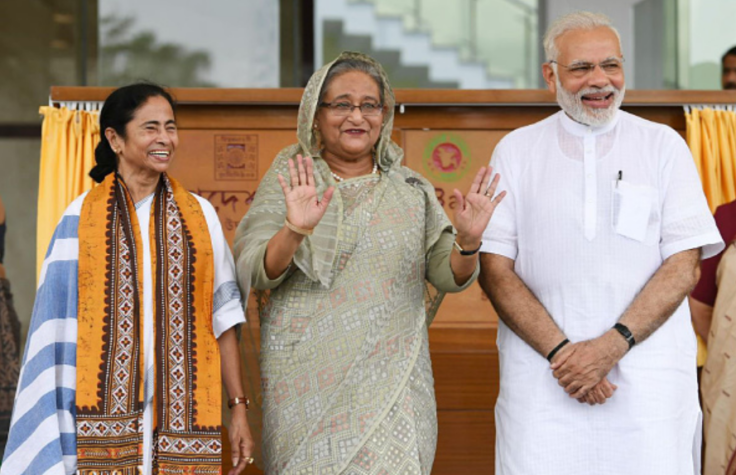
Another significant strain on Indo-Bangladesh relations is the BJP’s support of the NRC which identifies and expels illegal immigrants from Assam and could lead to the possible deportation of millions of refugees to Bangladesh. This potential exodus will result in a national security threat for Bangladesh, considering its resources are already overwhelmed due to its sheltering of more than a million refugees from Myanmar.
Although Modi claims that India and Bangladesh are witnessing a golden era in their friendship, the aforementioned bilateral issues signal otherwise. Furthermore, the killing of Bangladeshi nationals along the Indo-Bangladesh border by Indian forces amid suspicions of illegal border-crossing coupled with the rise of anti-Bangladesh rhetoric within India and anti-India rhetoric within Bangladesh continue to strain ties.
However, the Teesta water dispute, involving the distribution of the Teesta River waters between India and Bangladesh, is an issue that BJP and Bangladesh have traditionally agreed upon. The government of India agreed to share the river’s water with Bangladesh in 2011. Regardless, AITC is opposed to sharing the waters. Though BJP favors signing the water treaty and Dhaka has consistently requested access to river waters, the Indian government cannot go ahead without West Bengal’s approval. Thus, the AITC’s win is expected to maintain strained Indo-Bangladesh relations.
Conclusion
Given the results of the West Bengal elections, the BJP will need to tread cautiously and respect the preferences of its constituents within West Bengal. The BJP is expected to provide lip service to the NRC and CAA in West Bengal to keep its core constituencies, including the Matua community, intact while maintaining diplomatic ties with Bangladesh. Similarly, the AITC is expected to engage in friendly exchanges with Bangladesh but maintain its stance on the contentious Teesta river dispute to appease its own constituents. Bangladesh could attempt to improve ties with West Bengal by ensuring the export ban on necessary fish trade remains lifted. Additionally, West Bengal could help mediate between Delhi and Dhaka on the Rohingya issue, considering the AITC is sympathetic towards the cause.
The AITC is expected to engage in friendly exchanges with Bangladesh but maintain its stance on the contentious Teesta river dispute to appease its own constituents.
In order to reconcile domestic politics and Indo-Bangladesh dynamics, the BJP could incentivize the AITC to soften its stance on the Teesta dispute by offering certain trade-offs, such as the provision of more support on vaccines and a greater stake in Teesta talks, to ensure increased bilateral cooperation between India and Bangladesh. Simultaneously, the BJP could negotiate with Dhaka on the resolution of the Petrapole-Benapole trade deadlock amid the pandemic so that unhindered trade along the West Bengal-Bangladesh route can take place. The Indian government could also expedite the supply of vaccines to under-resourced Bangladesh once it fulfills its domestic vaccine demand.
Though the AITC victory and BJP loss in West Bengal explicitly changed the political landscape in India and implicitly affected Indo-Bangladesh relations, the BJP can attempt to normalize Delhi’s diplomatic ties with Dhaka by soliciting help from the West Bengal government. It is high time that the BJP recognizes and appreciates the integral role the state politics of West Bengal plays in Indo-Bangladesh relations.
***
Image 1: Richter Frank-Jurgen via Flickr
